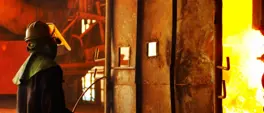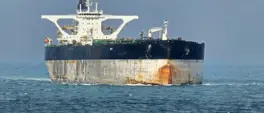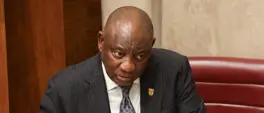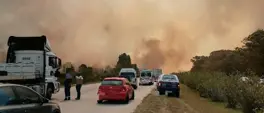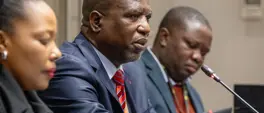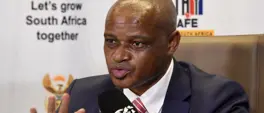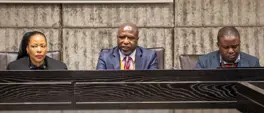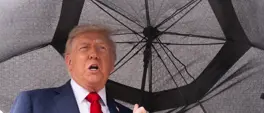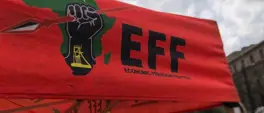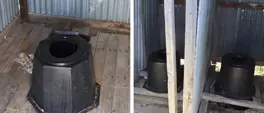MALAIKA MAHLATSI | AWSISA Water and Sanitation Global South Dialogue is an opportunity for meaningful progress in SA
Malaika Mahlatsi
7 November 2025 | 15:46"Water security involves balancing human needs with the requirements of nature, helping to maintain the integrity of rivers, wetlands, and other natural habitats."
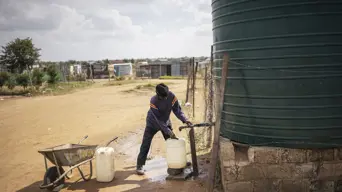
FILE: A man fills a jar with water from a tank in an informal settlement in Hammanskraal on May 23, 2023. Picture: Michele Spatari/AFP
An important global dialogue is taking place in the City of Ekurhuleni in the coming days. From the 9th to the 12th of November 2025, over 1400 delegates will gather at Emperor’s Palace to address one of the most urgent challenges facing South Africa and most of the Global South – water and sanitation.
The dialogue is taking place at a crucial time in our country where water insecurity is tearing our communities asunder. Residents of Gauteng know this too well, for the past few months have seen widespread protests from communities across the province who have had to bear the brunt for water security challenges that have resulted in dry taps, and sanitation challenges that have seen the emergence of outbreaks like cholera.
Just two years ago, a significant cholera outbreak occurred across three provinces in South Africa, with most of the cases reported in Gauteng. The epicentre of the outbreak was the township of Hammanskraal in the north of Tshwane.
The outbreak began in January 2023 and resulted in over 1000 suspected cases and 199 confirmed cases by August of the same year. The outbreak claimed 47 lives, most of them in Gauteng.
At the time, I was doing research for my Master of Science (Water Resource Science) degree at the Institute for Water Research at Rhodes University, analysing the equity dimensions and governance drivers of water security challenges in Hammanskraal.
Interviewing the families of sick and deceased people was debilitating. However, it solidified in my mind just how critical the resolution of water insecurity and sanitation challenges is in South Africa.
It is for this reason that I am excited about the inaugural Global South Water and Sanitation Dialogue hosted by the Association of Water and Sanitation Institutions of South Africa (AWSISA. AWSISA was formed by leading organisations committed to advancing South Africa’s water and sanitation sector.
These include water boards such as Rand Water, Overberg Water, Magalies Water, Amatola Water, UMngeni-uThukela Water, and Lepelle Northern Water; Catchment Management Agencies (CMAs) including the Breede Gouritz CMA and Vaal Central Water; the Water Research Commission; and infrastructure specialists such as the Trans-Caledon Tunnel Authority (TCTA).
Together, these institutions represent a collective force dedicated to sustainable water resource management, innovation, and ensuring equitable service delivery across the country.
The landmark dialogue will bring together policymakers, researchers, community leaders, private sector representatives, development partners, and other stakeholders who are committed to advancing the United Nations’ Sustainable Development Goal 6 (SDG 6): “Ensure availability and sustainable management of water and sanitation for all".
This involves achieving universal and equitable access to safe drinking water and sanitation, improving water quality by reducing pollution, increasing water-use efficiency, implementing integrated water resource management, and protecting water-related ecosystems. All these are issues that are at important for South Africa’s water security that is growing increasingly under threat.
South Africa is classified as a water-scarce country, with an average annual rainfall that is about half the global average and highly uneven rainfall distribution cross regions.
This scarcity is exacerbated by periodic droughts, climate change, increasing demand from a growing population and economy and most significantly, poor water governance at municipal level. Consider the case of Johannesburg, the wealthiest city in Africa, located in a Gauteng Province which accounts for about 35% of South Africa’s gross domestic product.
The city has a severe water loss problem, with roughly 46% of its water classified as non-revenue water due to leaks, aging infrastructure, and other issues. Physical losses from leaks and bursts account for about 23.7% of this water loss, while commercial losses like theft and billing errors make up another 9.2%. This wastage is a direct cause of the current water crisis, poor water governance and criminality. Its impact on the metro’s economy, and South Africa broadly, is immeasurable.
Secure access to water supports food production, industrial processes, and energy generation. Without water security, these sectors face disruptions, threatening jobs and economic stability. Additionally, and as I argued in my own research based on case study of Hammanskraal that I focused on, access to clean and safe water is fundamental to public health.
Water security helps prevent the spread of waterborne diseases, supports proper sanitation, and is vital for hospitals and healthcare facilities. Inadequate water supply and poor water quality disproportionately affect vulnerable communities like Hammanskraal and historically disadvantaged areas, leading to increased illness and mortality.
Furthermore, inequitable access to water fuels social tensions and conflict, especially in areas where communities compete for limited resources.
This was evidenced recently in Westbury and Coronationville where protests over water access turned violent, with police deploying flashbang grenades and firing rubber bullets to disperse angry crowds.
The water challenges in these areas arose from the throttling of water supply by the municipality, which helps reservoirs recover faster, spreads water more fairly across the city, and reduce leaks and bursts.
But the consequence of this intervention is that areas at higher elevations, such as Coronationville and Westbury, often experience extremely low water pressure and at times, no water at all.
Thus, ensuring water security promotes social cohesion and supports human rights by providing everyone with fair access to water, which is an essential resource.
Water and sanitation security is also crucial for the environment. Healthy ecosystems depend on adequate water flows to sustain biodiversity and provide ecosystem services such as water purification and flood regulation.
Water security involves balancing human needs with the requirements of nature, helping to maintain the integrity of rivers, wetlands, and other natural habitats.
Protecting these habitats is crucial as South Africa is increasingly vulnerable to the effects of climate change, including more frequent droughts and unpredictable rainfall patterns. Nowhere has the devastation of climate change been more evident than in KwaZulu Natal (KZN).
The April 2022 floods remain the deadliest flood disaster in South Africa's recorded history. More than 500mm of rain fell in just two days in parts of KZN.
The deluge destroyed homes, infrastructure, and livelihoods across the province. The floods caused more than R17 billion in infrastructure damage and claimed the lives of 436 people across the province, compelling the declaration of a state of disaster.
Other extreme weather events have been occurring across the country, causing significant infrastructure damage at a time when the economy is stagnant.
Water security strategies, such as efficient water use, conservation, and the development of resilient infrastructure, are critical for adapting to these changes and reducing the risks associated with water scarcity.
The significance of the AWSISA Global South Water and Sanitation Dialogue cannot be overstated, and its timing could not have been more apt. Water security and safe sanitation are vital for South Africa’s sustainable development, public health, economic growth and development, and environmental protection.
Addressing water and sanitation challenges requires coordinated action from the government, communities, researchers, multi-lateral institutions and the private sector.
As these state and non-state actors gather at Emperor’s Palace, South Africa and other countries in the Global South (more than 10 countries will be represented at the dialogue) have an opportunity to map the path to a water secure and safe sanitation future. Our very lives depend on it.
Malaika is a geographer (with expertise in urban geography and water resource governance) and researcher at the Institute for Pan African Thought and Conversation. She is a PhD in Geography candidate at the University of Bayreuth in Germany.
Get the whole picture 💡
Take a look at the topic timeline for all related articles.

